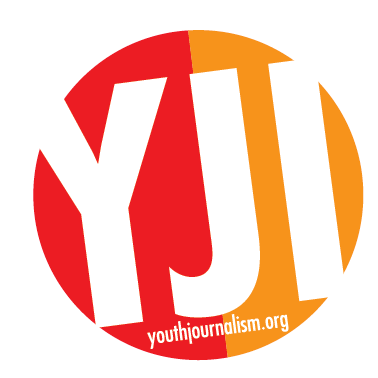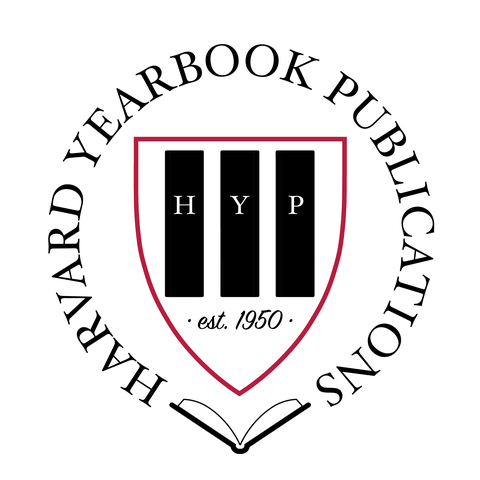
Marginalia Review Inc
Reaching 100,000+ readers with Deep Learning for a Digital Age, Marginalia integrates academic knowledge for a global audience. EST. 2017 Editor: @samuelloncar Deep Learning for the Digital Age

Marginalia Review Inc
Marginalia Review Inc is a U.S.-based nonprofit organization recognized by the IRS as a charitable organization under the category of Literary Organization. It was granted its exemption status in July 2022. The organization is classified as a Corporation and operates on a calendar ending in December.
Purpose and Activities
Marginalia Review Inc focuses on providing access to critical knowledge through its publication, The Marginalia Review of Books, which serves as a platform for scholarly discussions and reviews. It covers a wide range of subjects, including literature, history, science, and cultural studies. The organization aims to foster intellectual discourse and make complex ideas accessible to a broader audience.
Financial Overview
As of the latest available information, Marginalia Review Inc has reported no income or assets, indicating that it operates on a minimal budget. It is required to file Form 990-N with the IRS due to its low annual income, which is less than $25,000.
Charitable Status
As a charitable organization, contributions to Marginalia Review Inc are tax-deductible. This status allows donors to support the organization's mission while receiving tax benefits. Marginalia Review Inc relies on public support, aligning with its classification under section 170(b)(1)(A)(vi) of the IRS code.
Recognition and Impact
The organization has received positive recognition for its intellectual depth and accessibility. Scholars such as Bernard M. Levinson and Anthony T. Grafton have praised Marginalia's efforts in presenting complex scholarship in a readable format.
Edit WikiICO
844134404
3532
X (Twitter)
3659
Traffic
2611550
Home | The Marginalia Review of Books
From Social media
News about from their social media (Facebook and X).
Can we achieve a new form of consciousness, of Enlightenment, through the critique of power structures. Many today assume such Enlightenment-through-critique is either straightforward or impossible. Gillian Rose, an influential critical theorist, thought the answer to the question was complicated.
Like Comment
Data about organisation
Printing, Publishing Category
Organisations with similar rank to Marginalia Review Inc in category Printing, Publishing

Restless Books is an independent, nonprofit publisher devoted to championing essential voices from around the world whose stories speak to us across linguistic and cultural borders.

Transit Books is a nonprofit publisher of international and American literature, based in Oakland, California.

Deep Learning for the Digital Age.

205. Appalachian Studies Association Inc
Fostering quality of life and appreciation for Appalachia and promoting and engaging action since 1977, the ASA is a non-profit organization located at Marshall University in Huntington, WV.

206. Youth Journalism International, Inc.
Teaching journalism, connecting young people and empowering youth since 1994.
Boston
Organisations from Marginalia Review Inc

315. Boston Preservation Alliance, Inc.
The Boston Preservation Alliance serves to protect the places, promote the vibrancy, and preserve the character that make historic Boston unique.

316. International Institute of New England
The mission of the International Institute of New England is to create opportunities for refugees and immigrants to succeed through resettlement, education, career advancement and pathways to citizenship.

Deep Learning for the Digital Age.

319. Boston Youth Symphony Orchestras, Inc.
Boston Youth Symphony Orchestras: Composing the Future www.
Similar organisations
Similar organisations to Marginalia Review Inc based on mission, location, activites.

Proudly Celebrating 40 Years of Publishing Unique, Outstanding Literature From Around The World.

MAINE CENTER FOR PUBLIC INTEREST REPORTING
A nonprofit newsroom delivering citizen-supported, nonpartisan journalism for Maine.

Small press publisher.

Quarterly magazine of literature and the arts, founded in 1948.
Similar Organisations Worldwide
Organisations in the world similar to Marginalia Review Inc.

CHARITABLE TRUST FUND OF THE ROTARY CLUB OF ORILLIA (ca)
ClubRunner is the award-winning membership management and communication platform for clubs and districts.
Interesting nearby
Interesting organisations close by to residence of Marginalia Review Inc

The Harvard Crimson is the only breakfast-table daily newspaper in Cambridge, Mass.

Harvard Yearbook Publications Incorporated
Harvard Yearbook Publications is the student-run organization responsible for capturing the memories and moments that make up our college experiences.
Similar social media (7191)
Organisations with similar social media impact to Marginalia Review Inc

67385. Down Syndrome Association of Wisconsin Family Services Inc
DSAW provides support to individuals with Down syndrome and their families across Wisconsin.

67386. NATIONAL ASSOCIATION OF MORTGAGE BROKERS
Volunteer led, member driven since 1973.

Deep Learning for the Digital Age.

67388. Blues Angel Music Public Foundation
We have the greatest selection of New, Used, and Vintage Gear on the Gulf Coast.

67389. North American Society for Sport Management Inc
Follow us on Twitter: @NASSM.
Similar traffic
Organisations with similar web traffic to Marginalia Review Inc

42493. Texas Campaign for the Environment Fund
Empowering Texans to change corporate and governmental policy through sustained grassroots organizing campaigns.

Deep Learning for the Digital Age.

42496. LA Canada Flintridge Chamber of Commerce and Community Association
The LCF Chamber of Commerce & Community Assoc.
Join us and make a difference for the future!
Sign Up
Please fill in your information. Everything is free, we might contact you with updates (but cancel any time!)
Sign in with GoogleOr
Good News
Remembering Rabbi Arthur Waskow, a beacon of social justice and compassion. His legacy through literature and activism continues to inspire change in our communities. Let's honor his work by spreading kindness and striving for a just world. 🕊️ #SocialJustice #Legacy #Kindness
Arthur Waskow, 92, Influential Rabbi and Activist for Social Justice, Dies
The New York Times
Like CommentExciting news for folk music lovers! 🎶 The National Folk Festival is finally coming to Jackson, MS from November 7-9, 2025! 🌟 Let's celebrate the rich cultural heritage and community spirit together. Don't miss out on this historic event! #NationalFolkFestival #JacksonMS #GoodNews
National Folk Festival Coming To Jackson, MS November 7-9, 2025
Forbes
Like Comment🌟 What a fantastic day at the P-22 Day Festival in Griffith Park! 🎉 Celebrating the incredible mountain lion and the ongoing efforts to protect wildlife in LA! 🦊💚 Huge shoutout to Mika Edwards and everyone involved for making this event happen! #WildlifeConservation #PositiveNews #EduoOrg
P-22 Day Festival celebrates beloved mountain lion and efforts to protect LA wildlife
CBS News
Like Comment









